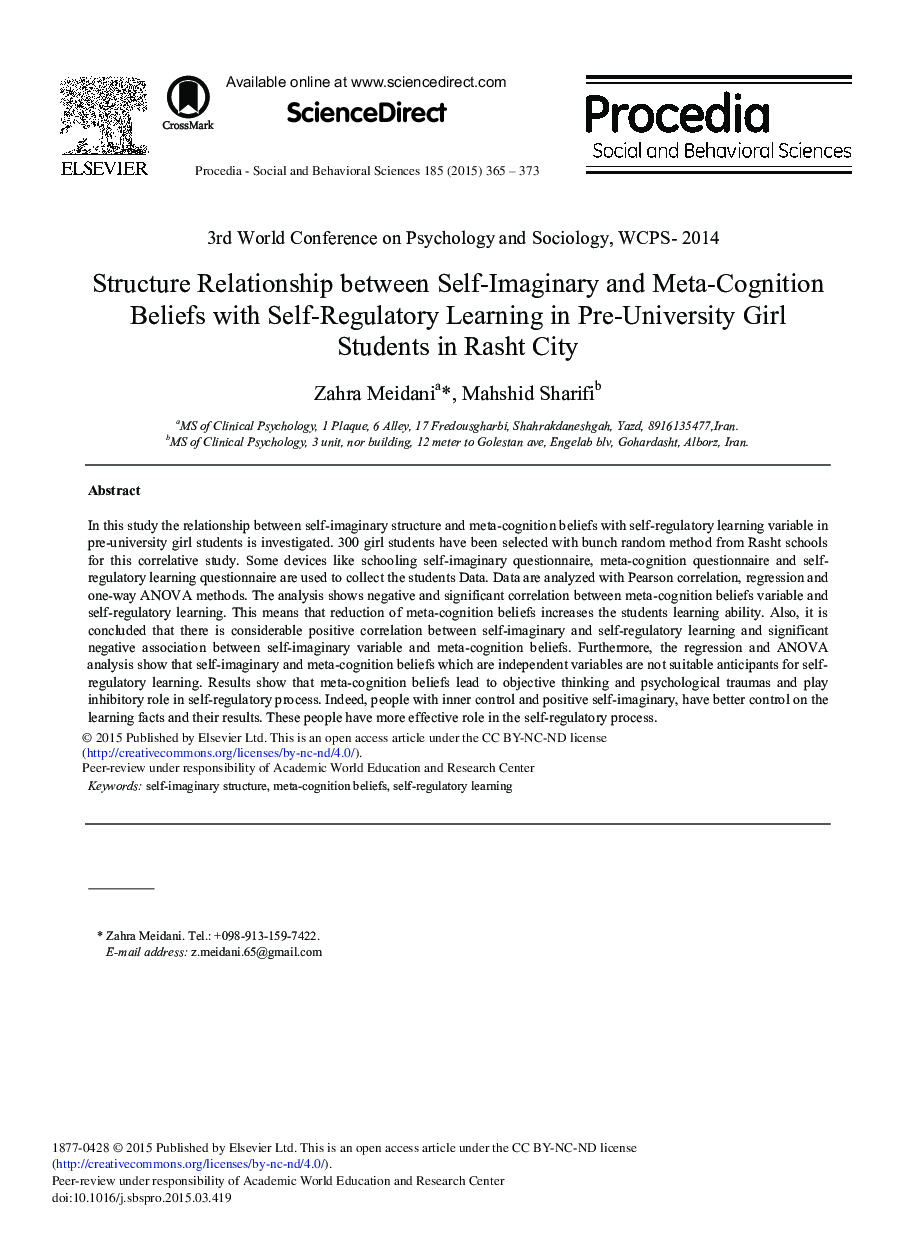| Article ID | Journal | Published Year | Pages | File Type |
|---|---|---|---|---|
| 1111047 | Procedia - Social and Behavioral Sciences | 2015 | 9 Pages |
In this study the relationship between self-imaginary structure and meta-cognition beliefs with self-regulatory learning variable in pre-university girl students is investigated. 300 girl students have been selected with bunch random method from Rasht schools for this correlative study. Some devices like schooling self-imaginary questionnaire, meta-cognition questionnaire and self-regulatory learning questionnaire are used to collect the students Data. Data are analyzed with Pearson correlation, regression and one-way ANOVA methods. The analysis shows negative and significant correlation between meta-cognition beliefs variable and self-regulatory learning. This means that reduction of meta-cognition beliefs increases the students learning ability. Also, it is concluded that there is considerable positive correlation between self-imaginary and self-regulatory learning and significant negative association between self-imaginary variable and meta-cognition beliefs. Furthermore, the regression and ANOVA analysis show that self-imaginary and meta-cognition beliefs which are independent variables are not suitable anticipants for self-regulatory learning. Results show that meta-cognition beliefs lead to objective thinking and psychological traumas and play inhibitory role in self-regulatory process. Indeed, people with inner control and positive self-imaginary, have better control on the learning facts and their results. These people have more effective role in the self-regulatory process.
